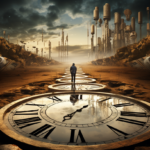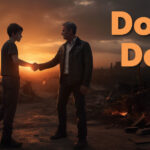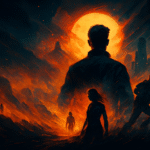ANOTHER UPDATE: The Story Department article has been edited and all is well. Thanks everyone!
UPDATE: The article in question on The Story Department‘s web site has been taken down pending review. (P.S. The Story Department is still one of my favorite sources of information on screenwriting)
—
I consider myself a pretty fair guy. I go out of my way to cite sources of any material I use, and am even happy to promote fellow consultants if I think they’ve got something important to say.
So imagine my surprise when one of my readers pointed out that they found several of my ideas posted in a recent article on The Story Department‘s web site, without any credit.
In this post about passive protagonists, written by Jack Brislee, the following appears:
On the other hand, a passive protagonist displays some or all of the following traits. He
has no strong desire
does not make decisions
does not pursue a goal
is reactive instead of active
allows someone else to dictate his life
Now here’s what I wrote in my post on the subject of passive protagonists earlier this year:
A passive protagonist is a main character that displays some or all of these traits:
has no strong desire
doesn’t make decisions
doesn’t pursue a goal
reactive, instead of active, as a rule
allows someone else to dictate their fate
Look familiar?
Now obviously the concept of what constitutes a passive protagonist has been around a while, but the expression of this particular concept was unique to my site.
And what about the controversial hook of Jack Brislee’s article — i.e. breaking/bending the rule of no passive protagonists?
Here’s what he has to say:
Even the most rusted on admirers of the traditional Hollywood screenwriting style admit that there are three occasions when the protagonist may be passive –
- in the first few pages of the script, where the protagonist can be passive in his normal world
- after the inciting incident, where the enormity of the call to adventure might result in initial refusal.
- at the end of Act II in the “All is Lost” or “Dark Night of the Soul” moment, when the protagonist, having just been beaten up (physically, mentally or both) is consumed with self doubt and unable to act.
I’m not sure I’d qualify as a “rusted on admirer,” but here’s what I had to say in one of my posts last year:
In a Hollywood script, there really are only three allowable times that your main character can be somewhat passive:
- In the first few pages of your script… your protagonist can be somewhat passive in their normal world…
- After the catalyst/inciting incident/call to action… Sometimes the hero refuses the call flat out.
- When “All is Lost” — usually late in Act II… the hero gets the crap beaten out of them (either physically or mentally or both), and has a moment of crisis. The protagonist takes a moment to wallow in self doubt, after having just endured some form of tragedy or failure.
This one’s especially irksome. The point being made may not be earth-shattering — it’s more like one of those, “Hey yeah, you’re right!” kinda deals — but as far as I know, I was the first one to make the point. Is it too much to ask for a shout out? There are other authors cited in the post, just not me.
I’m happy that Jack Brislee is writing posts that show how some screenwriting rules can be broken.
But plagiarism should not be one of those rules.
Want me to read your screenplay? Please take a look at my script services.







Hi Trevor,
Thank you for flagging this. I have immediately taken down the article in question.
Scriptwrecked.com is an excellent resource for screenwriters and deserves to be recognized as such.
My sincere apologies that this one slipped through the net.
Karel
Thanks for the note Karel. I really appreciate your taking the time to post a comment and address the issue.
I am a little bit confused. I have read the Jack Brislee article and I see that he did acknowledge you. Also, when you say “I was the first one to make the point” that there are three allowable times when the protagonist can be passive, how do you justify this? Jack cites Vogler making the first two points in 1999 and Snyder making the third point in 2005. Your article was published at a much later date. This is all very strange.
Phil, thanks for your note (and reminder to update this posting). Jack has since updated the article, and it reads very differently from its original version.
With regard to your question — yes, many others have discussed the mechanics of these story moments at length. As far as I’m aware though, I was the first to cite these three specific times in terms of the protagonist being “passive.” It’s been such a dirty word in the past for screenwriting pundits.